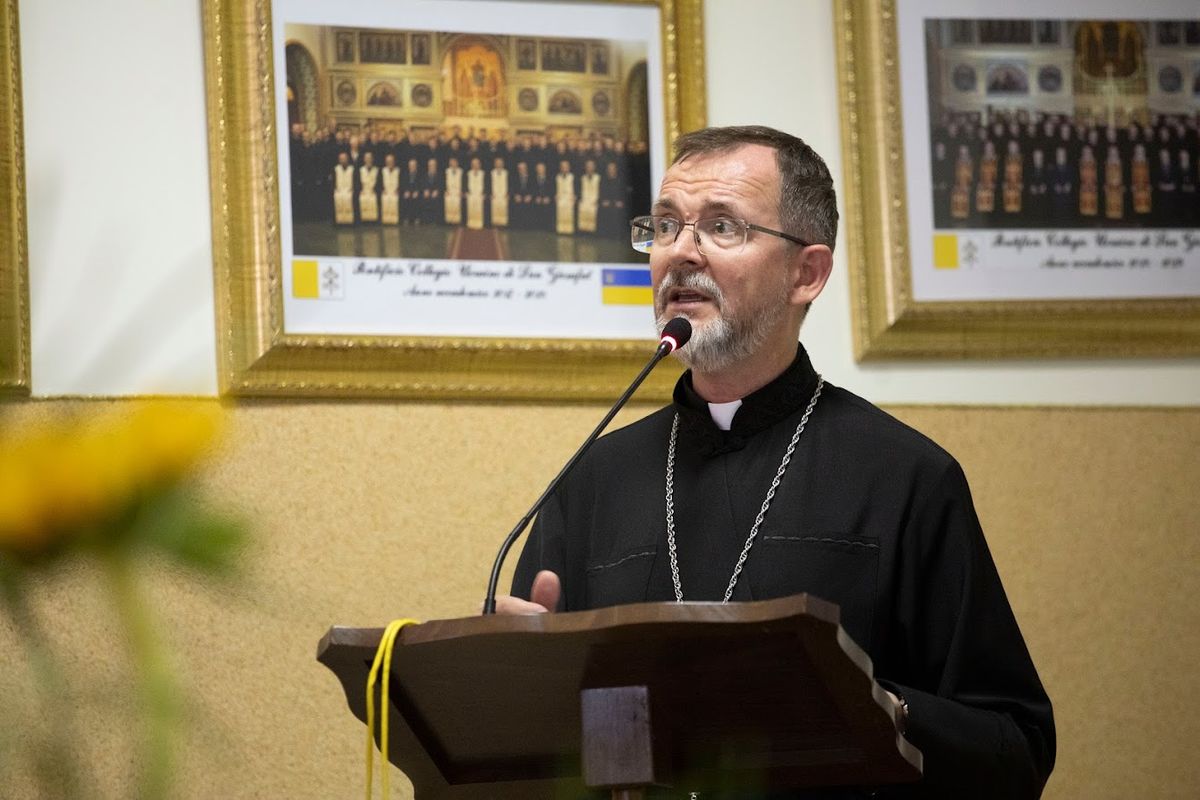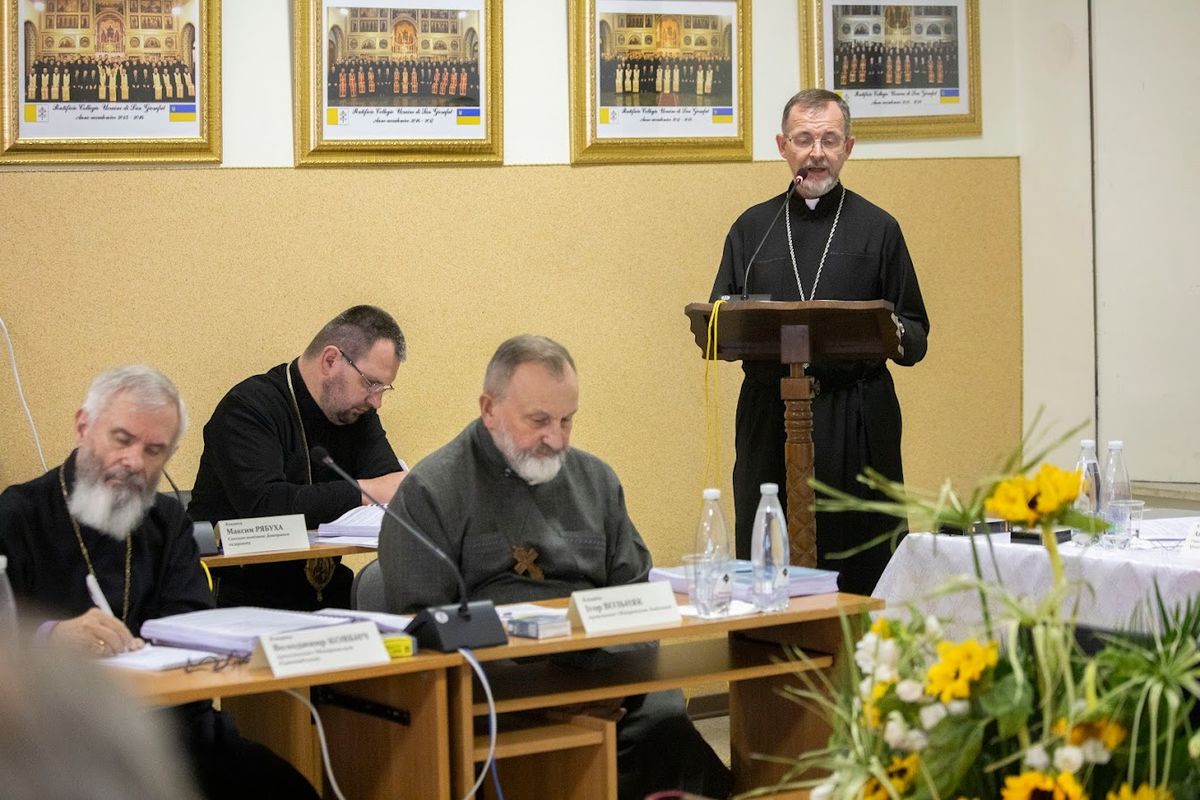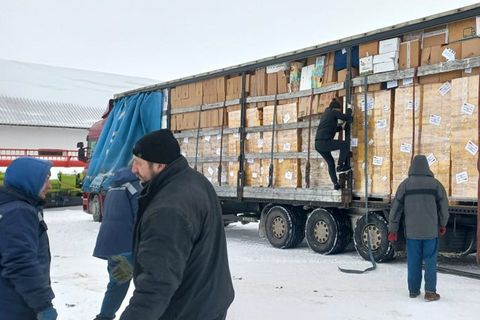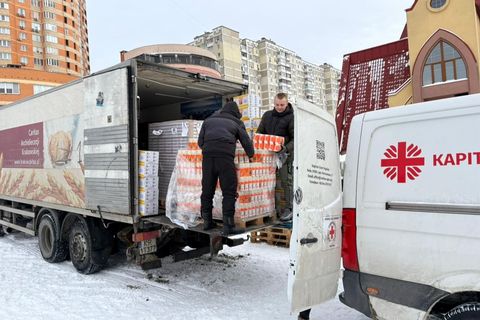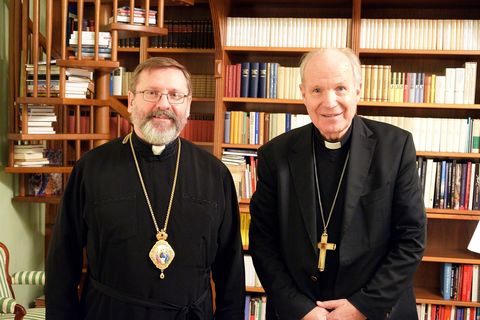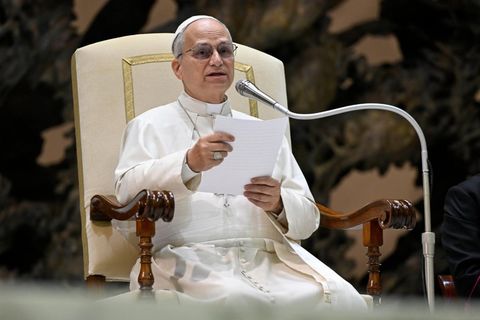Bishop Bohdan Dziurakh introduces the situation of Ukrainian refugees in Western Europe
Bishop Bohdan Dziurakh, Apostolic Exarch for Ukrainians of the Byzantine rite in Germany and Scandinavia, illustrated the situation of Ukrainian refugees in Western Europe and proposed several methods of pastoral care for them during the sessions of the Synod of Bishops of the UGCC, which is taking place on September 3–13 in Rome (Italy).
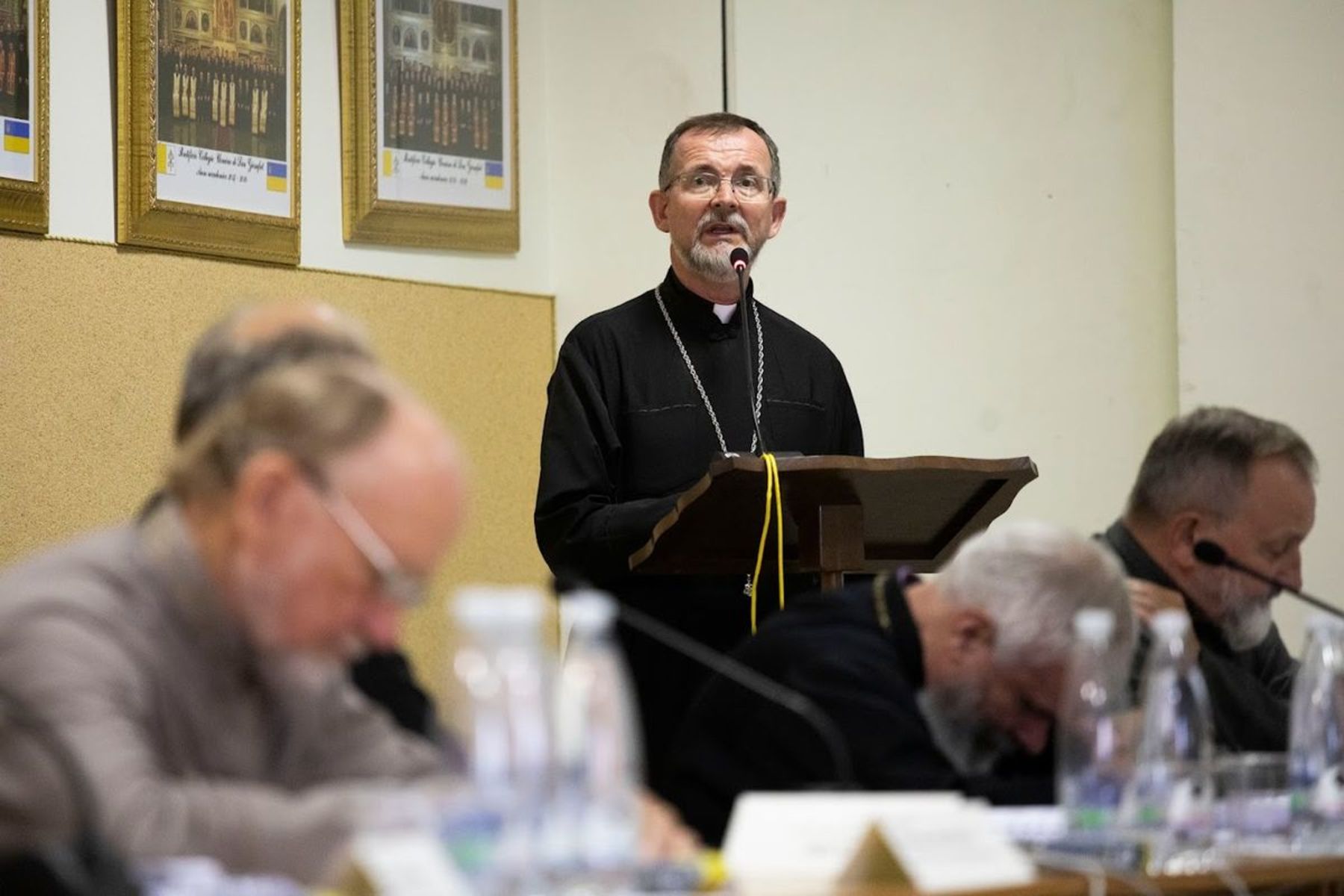
Describing their spiritual and psychological state, Bishop Bohdan highlighted the following aspects: separated and incomplete families, religious affiliation, pain of separation from loved ones, loss of property, mourning for the dead, guilt over being in safety and outside Ukraine, difficulties with integration into Western societies, lack of access to priests of their own denomination.
Reviewing the current situation of refugees in Western Europe, the Apostolic Exarch pointed out the Church’s vocation towards them. “We are called to be close to our people, to accompany them spiritually wherever they are, to help them preserve their faith, to live by faith, and to attain the goal of their lives — unity with God here on earth and in eternity. It is our vocation and task. It is the expression of the Church’s maternal face and maternal nature as the one that gives birth to children in the Holy Spirit and is with them everywhere and always: ‘Your Church is always with you!’” he said. It creates the need to plan our pastoral care for newcomers not for the short term but for the long one.
In the second part of the report, Bishop Bohdan Dziurakh outlined the current needs of Ukrainian refugees. Among them, the first place is taken by the existential ones that arise immediately upon arrival in a foreign country: a roof over their heads, household documents, insurance, registration of children in kindergarten or school, language learning, and finding their jobs. According to the speaker, parish centers became crisis centers responding to this challenge. Today, the newly arrived refugees are often at the stabilization stage in the integration processes and the spiritual and religious sphere. However, the bishop emphasizes that the need for a qualitative, in-depth sociological study does not fade away.
The third part of the report focused on the Church’s pastoral response in the settlements to the challenges resulting from the Russian war against Ukraine.
Recalling advice once given by American professionals from Washington, who said that “to truly help people who suffered from war, we need to provide them with support and assistance on three levels: spiritual, psychological and social; if one of these areas is not met, they will continue to suffer and the consequences can be painful and sometimes even tragic for them and their environment.”
According to him, this requires cooperation between the church and other competent and responsible institutions: the state, public organizations, volunteers, social and charitable institutions, and other churches and denominations.
The social and charitable ministry is about protecting the rights and freedoms of Ukrainians abroad, promoting and fostering Ukrainian education and culture, learning the country’s language, and helping to resolve administrative and household issues. The second, equally important, area of assistance to refugees is psychological and therapeutic support. The third is “our natural sphere and our main vocation, and therefore our most fundamental task.” It is about pastoral support for refugees and emigrants.
Here, the most important tasks listed by the bishop are as follows:
· to create a community of believers by fostering authentic relationships between people with God and each other;
· inclusive pastoral care, avoiding proselytism;
· parish pastoral care in an evangelizing way;
· the therapeutic dimension of pastoral care;
· missionary pastoral care;
· cooperation with local Catholic and Orthodox communities.
Press service of the Secretariat of the Synod of Bishops of the UGCC